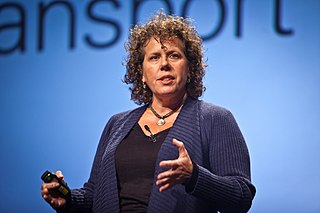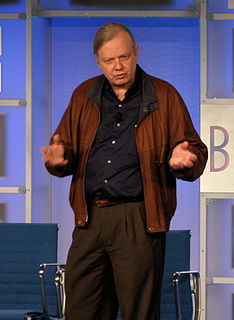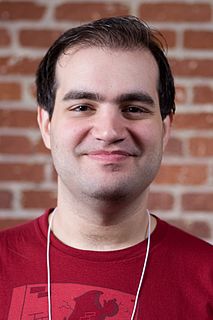A Quote by Michael J. Saylor
What amplifies the transformational power ahead is the confluence of two major technological currents today: the universal access to mobile computing and the pervasive use of social networks.
Related Quotes
Cloud computing means you are doing your computing on somebody else's computer. Looking ahead a little, I firmly believe cloud - previously called grid computing - will become very widespread. It's much cheaper than buying your own computing infrastructure, or maybe you don't have the power to do what you want on your own computer.
The power efficiency of computing has improved by a factor of a billion from the ENIAC computer of the 1950s to today's handheld devices. Fundamental physics indicates that it should be possible to compute even another billion times more efficiently. That would put the power of all of today's present computers in the palm of your hand. That says to me that the age of computing really hasn't even begun yet.
India for sure is a mobile-first country. But I don't think it will be a mobile-only country for all time. An emerging market will have more computing in their lives, not less computing, as there is more GDP and there is more need. As they grow, they will also want computers that grow from their phone.
There are 4 billion cell phones in use today. Many of them are in the hands of market vendors, rickshaw drivers, and others who've historically lacked access to education and opportunity. Information networks have become a great leveler, and we should use them together to help lift people out of poverty and give them a freedom from want.
Internally, we're focused on building our own technology, leveraging all the momentum that's out there around wearable computing and mobile computing and PC computing. But at the end of the day, all the code we've written and all the invention we've created has been focused on our own tech and our own products.
Keep in mind, the web existed for almost a decade before social networks became pervasive. Even though the technology was available to make a social network in around 1995, it simply didn't happen until somebody had the idea to do it, do it big, and do it with a certain level of quality a decade later.
If you look back over the history of computing, it started as mainframes or terminals. As PCs or work stations became prevalent, computing moved to the edge, and we had applications that took advantage of edge computing and the CPU and processing power at the edge. Cloud computing brought things back to the center.


































